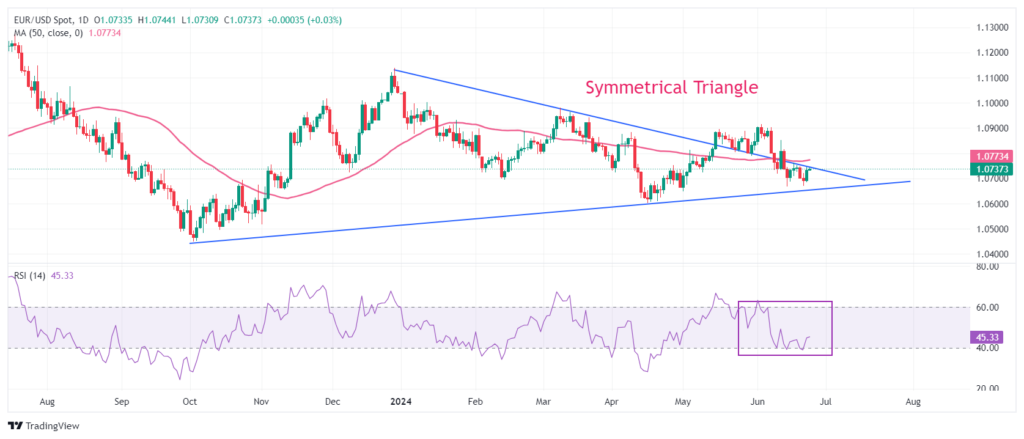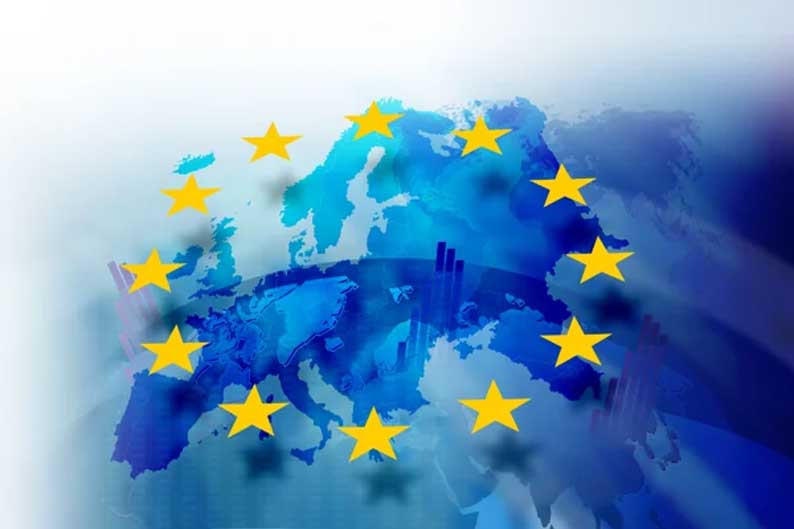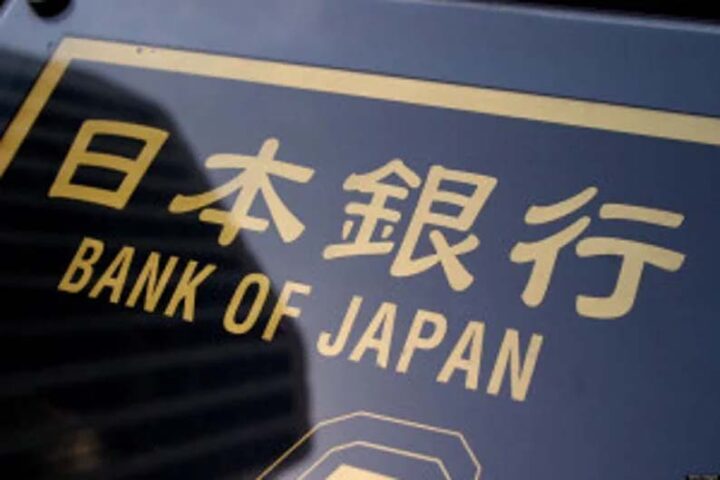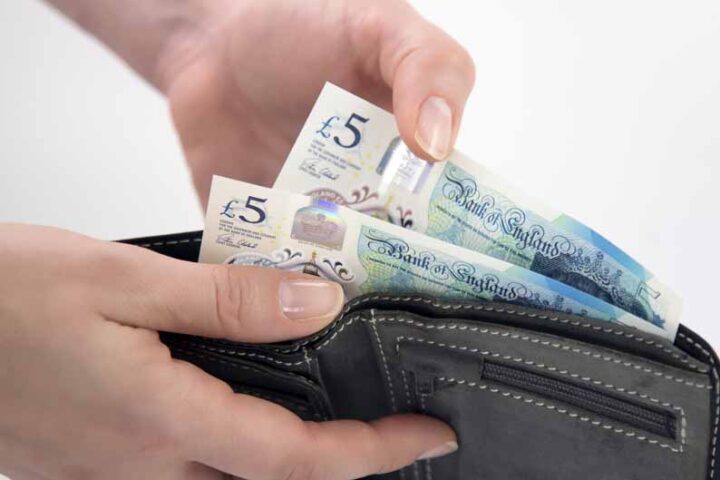The EURUSD extended its recovery to 1.0740 in Tuesday’s European trading, with the major currency pair rising as growing optimism for the Fed to reduce interest rates twice this year has increased investors’ risk appetite.
The US Dollar Index (DXY), which tracks the greenback’s value against six major currencies, has dropped to 105.40 as demand for safe-haven assets has eased. The DXY Index corrected even though the preliminary US S&P Global Purchasing Managers Index (PMI) unexpectedly beat the consensus and its prior numbers in June.
This week, investors will focus on the US core Personal Consumption Expenditure price index (PCE) for May, which will be published on Friday. The core PCE price index data is the Federal Reserve’s preferred inflation measure, and it will provide fresh cues on when and how much the central bank will reduce interest rates this year.
EURUSD rose to 1.0740 as the market sentiment is favourable for risk-perceived assets. However, the outlook for the Euro is uncertain as economic prospects of the Eurozone’s largest economy appear to be deteriorating.
The Ifo Business Climate, an early indicator of current conditions and business expectations in Germany, surprisingly declined to 88.6 in June. Investors forecasted a rise to 89.7 from May’s reading of 89.3.
In the same period, the Expectations index unexpectedly dropped to 89.0 from the estimates of 91.0 and the former release of 90.3 (downwardly revised from 90.4).
“The German economy is having difficulty overcoming stagnation,” said Ifo President Clemens Fuest.
Last week, the preliminary HCOB PMI data for June also pointed to slowing economic activities due to a sharper decline in new orders from domestic as well as global markets.
The Manufacturing PMI contracted at a faster pace and declined to a six-month low of 45.6 from the prior reading of 47.3. The Services PMI continues to expand but at the slowest pace in three months.
The dismal economic outlook for the Eurozone economy points to subsequent rate cuts from the European Central Bank which began unwinding its restrictive interest rate framework in its policy meeting in early June.
However, officials have been refraining from committing to any specific rate-cut path as they remain concerned over upside risks to wage inflation, which could boost price pressures.
Meanwhile, political uncertainty is deepening as France heads toward the first round of snap legislative elections, scheduled for June 30.
French President Emmanuel Macron called for a snap election after his party suffered defeat in the European parliamentary elections on June 9 from Marine Le Pen’s far-right National Rally (RN).

Technical Analysis: EURUSD by TradingView
(Source: OANDA)







